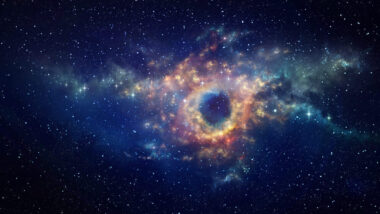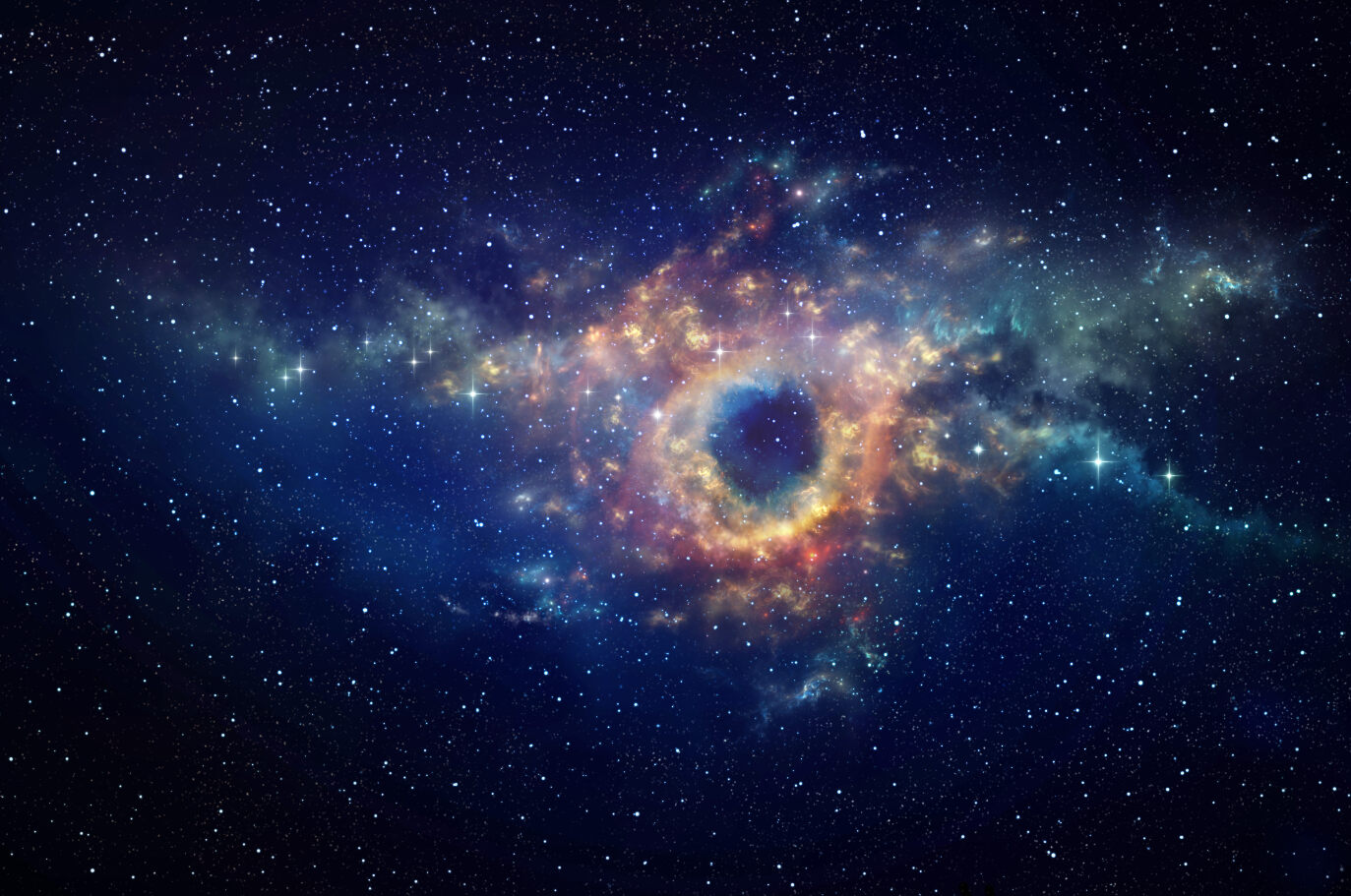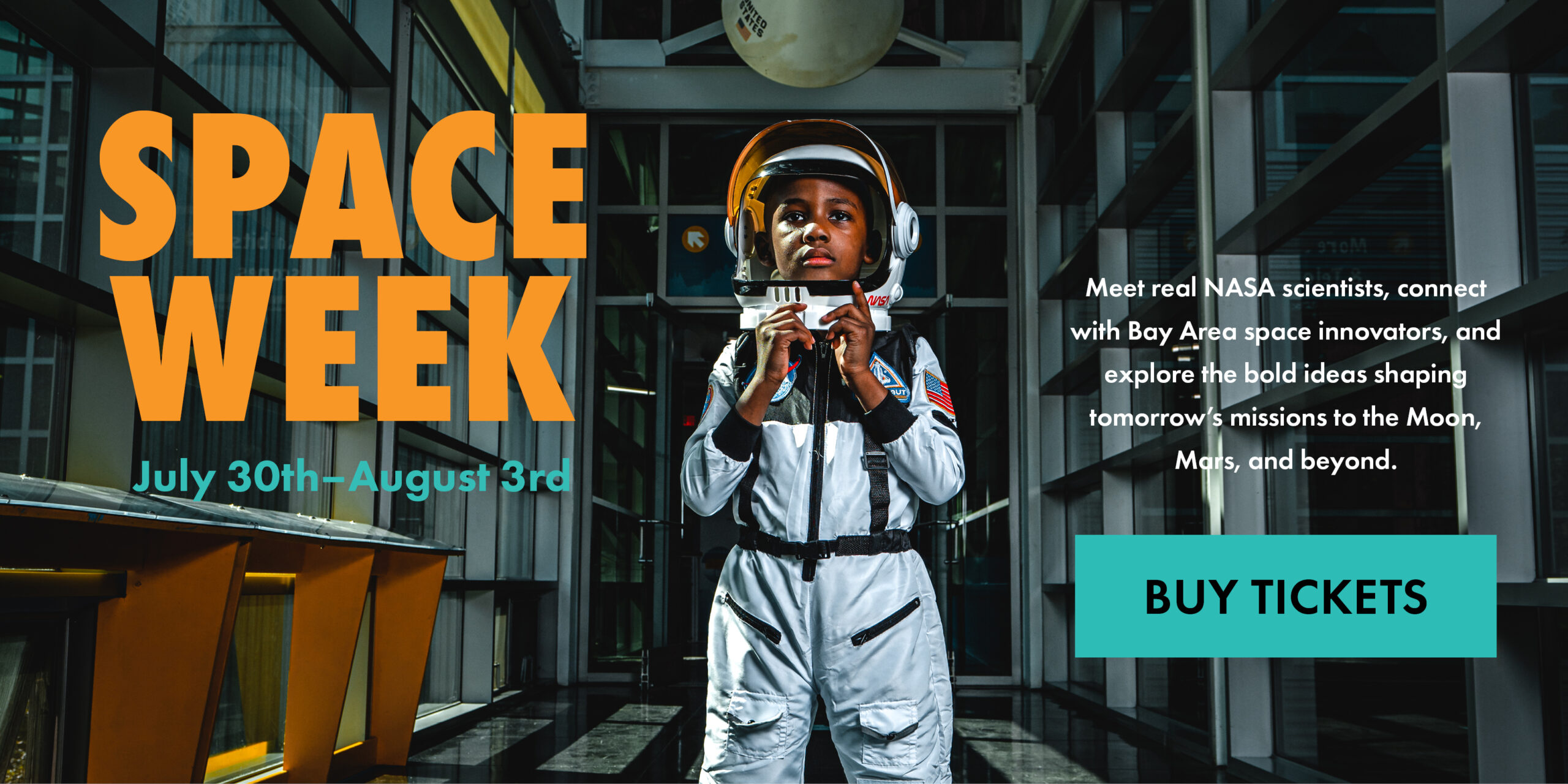
- This event has passed.
First Fridays: Stellar Ending, Death of Stars


Black hole and cosmic waves in outer space. Nebula at the center of a galaxy clusters in universe. Stars constellations background.
Friday, Sept 1
All ages, Family-friendly
$15 Adults, $10 Kids/Seniors, $5 Members
6:00 PM-10:00 PM
Just like people, every star has a distinct life cycle, but not every star’s story ends the same. Head to Chabot Space & Science Center’s First Friday for a journey on how stars die and all the factors that lead up to their fate. From white dwarfs to supernovae and black holes, discover the science behind each of these exciting endings to the universe’s most iconic objects.
This is your chance to attend a talk by an astronomy expert, see these concepts in action at a Live Science show, create a star life cycle craft to take home and head to Chabot’s historic telescopes to spot one of these bright objects.
Star Life Cycle Activity
Mezzanine
6:00 PM-9:00 PM
Did you know stars have a teen phase? We compare the life cycle of small/medium stars to our human life cycle to show different life stages. Unleash your creativity to recreate a star’s life!
Live Science: Turn on the Dark
Theatre
6:30 PM
Everyone experiences the night sky, but do we all experience it equally? In this live science show, we will explore how light pollution has impacted viewing of some of the most spectacular astronomical objects, including our own galaxy, the Milky Way, and how we can turn on the dark at night across the world.
Passport to the Universe (19 minutes)
Planetarium
6:30 PM
(19 min) Narrated by Tom Hanks, in “Passport to the Universe” you can fly beneath the rings of Saturn, into the heart of the Orion Nebula, and out into the vastness of space to experience stunning cosmic destinations as never before possible.
Exploding Stars, Dark Energy, and the Runaway Universe with Dr. Jeffrey Silverman
Theatre
7:00 pm
Some of the most energetic and fascinating objects in the Universe are exploding stars known as supernova. These huge outbursts come from the violent deaths of stars and can become brighter than the entire galaxy in which they’re found. Atoms needed to create life are built up in stars and then spread throughout space during these supernova explosions. Observations of distant supernova were the first evidence that the expansion of the Universe is speeding up with time, instead of slowing down. This totally unexpected behavior is likely due to “dark energy”, which is one of the biggest unsolved mysteries in modern science.
Dr. Jeffrey Silverman is a Senior Staff Data Scientist at Mozilla and has been working with Big Data in the Tech Industry for the past 7 years. Before that Jeffrey was a National Science Foundation Astronomy & Astrophysics Postdoctoral Fellow at the University of Texas at Austin and earned his PhD in Astrophysics at UC Berkeley working on observations of exploding stars and dark energy with Prof. Alex Filippenko. Jeffrey is also involved in various science communication and public outreach programs including volunteering at Chabot (inside the Museum and on the Observatory Deck), organizing Astronomy on Tap events around the world, and co-hosting Big Screen Science (formerly at the Alamo Drafthouse Cinema in San Francisco).
Shining like a Supernova (and Other Stellar Endings)
Lab 1
7:15 PM
As stars near the end of their lives, they know how to put on a spectacular show. Join Chabot Educators on a speedy journey through the later stages of a star’s life cycle, exploring reactive cores, explosive supernova, and mysterious black holes through fun, family-friendly demonstrations.
The Sky Tonight: Live Show
with East Bay Astronomical Society
Planetarium
7:30 PM
Explore the cosmos as a Chabot Astronomer leads you through the galaxy using a Zeiss Universarium Mark VIII Star Projector.
Telescope Makers Workshop
with East Bay Astronomical Society
Lab 2
7:30 PM-10:00 PM
Open to all ages, the Telescope Makers’ Workshop is an all-volunteer group committed to helping people build their own telescopes. Drop in to see what they are up to.
The Eastbay Astronomical Society serves Bay Area residents and astronomy enthusiasts with events, classes, and Oakland’s premier views of the universe.
Shining like a Supernova (and Other Stellar Endings)
Lab 1
7:45 PM
As stars near the end of their lives, they know how to put on a spectacular show. Join Chabot Educators on a speedy journey through the later stages of a star’s life cycle, exploring reactive cores, explosive supernova, and mysterious black holes through fun, family-friendly demonstrations.
Shining like a Supernova (and Other Stellar Endings)
Lab 1
8:15 PM
As stars near the end of their lives, they know how to put on a spectacular show. Join Chabot Educators on a speedy journey through the later stages of a star’s life cycle, exploring reactive cores, explosive supernova, and mysterious black holes through fun, family-friendly demonstrations.
Space In Your Face! Presents: Black Holes Suck with Julia De Marines
Theatre
8:30 PM
Join us as we learn how black holes form, how we detect them, and what would happen if we were to be sucked into them! Stay until the end for a quiz with prizes!
Julia DeMarines is an Astrobiologist, a National Geographic Explorer, and researcher with UC Berkeley’s Earth and Planetary Science Department and with Blue Marble Space. Her research involves detecting life in the Universe through biosignatures and technosignatures and the ethics of sending powerful, intentional messages into space to contact aliens. She holds a master’s degree in Space Studies from the International Space University and a Bachelor’s in Astronomy from the University of Colorado. Outside of academia Julia is a passionate STEM educator and science communicator. In 2013 she created Space in Your Face! which aims to communicate complex space concepts in fun and engaging ways because everyone deserves to understand the Universe we belong to.
Shining like a Supernova (and Other Stellar Endings)
Lab 1
8:45 PM
As stars near the end of their lives, they know how to put on a spectacular show. Join Chabot Educators on a speedy journey through the later stages of a star’s life cycle, exploring reactive cores, explosive supernova, and mysterious black holes through fun, family-friendly demonstrations.
Star Stories
Observation Deck
9:00 PM
Come listen to Stories of the Stars from all over the world! In addition to the Greek and Roman Classical Myths, you’ll hear stories from Native Americans, India, Egypt, Africa, and who knows where else?
5000 Eyes: Mapping the Universe with DESI (30 minutes)
Planetarium
9:00 PM
The Dark Energy Spectroscopic Instrument (DESI) is creating the most detailed map of our nearby universe. Installed on the Mayall telescope on Kitt Peak in Southern Arizona, DESI’s 5000 independently operated robots can measure the light from thousands of galaxies at once. Join us as we explore the science, instrument, and people behind this global endeavor.





